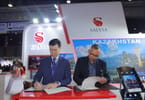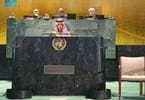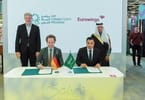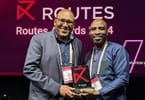The member countries of the Greater Mekong Subregion have been incredibly committed to driving regional tourism collaboration. This year, we will celebrate our 23rd Mekong Tourism Forum in the UNESCO World Heritage site of Bagan in Myanmar.
Obviously a lot has changed in the region, as well as in global tourism, in the past 20 years. While some countries were closed to tourism, others were in early development phases. Today all countries focus on tourism as a key economic pillar.
The rising Asian middle class has shifted key source markets from the west to the east, resulting in more regional tourists, demanding different products and communication channels. But despite of all that, the key challenge that we have faced, and are trying to overcome, is to drive engagement.
In order to overcome this obstacle, the Mekong Tourism Coordinating Office has created various innovative initiatives to encourage public and private sector engagement, such as:
– the social commerce marketing and capacity building platform “Mekong Moments”
– the regional social media campaign “Mekong Mini Movie Festival”
– the responsible travel guide “Experience Mekong Collection”
– the “Mekong Trends” – delivering tourism insights
– the “Mekong Innovative Startups in Tourism” (MIST) program, mentoring startups in the travel tech and social impact categories
– the institutional website MekongTourism.org, housing an e-library
– the Mekong Tourism Contributor Program
– the annual industry conference “Mekong Tourism Forum”
Making regional tourism collaborations between multiple countries can be a real challenge. How do you create value for the travel and tourism industry in the Mekong region?
The strategy of the Mekong Tourism Coordinating Office (MTCO) over the past five years has been built entirely around contribution, collaboration, and stakeholder engagement. If engagement can be achieved, the collaborative nature of marketing the destination is immensely powerful – so long as it’s facilitated in a way that each stakeholder in the visitor economy contributes, benefiting their own business and ultimately collaboratively driving value to the overall exposure of the destination.
This collaborative model could, in theory, enable any low-budget destination to effectively compete with any cash-rich destination, building virtual consortia of travel businesses in the destination.
We have developed a collaborative marketing and capacity building ecosystem to drive sustainable tourism and inclusive growth in the region. This strategy has also transformed the traditional destination management model to an inclusive crowd-marketing model. The result: a sustainable brand powered by authentic experiences which are created and delivered by small, responsible travel businesses. Those are shared by real travellers, inspiring the world to visit the region as conscious and purposeful travellers.
The Experience Mekong Collection brings together small, medium and social enterprises committed to responsible tourism. What are the criteria a business has to fulfill to be a part of this group?
Consumer trends have fuelled the desire of travellers to engage in authentically local and sustainable experiences. This is positive for inclusive tourism, and the economic value that tourism brings spreads out to secondary destinations and into communities where micro, small, and medium businesses have the opportunity to benefit.
These small responsible travel businesses are curated to make up the Experience Mekong Collection, serving as a trusted consumer label for social enterprises in the travel sector. The collection is aligned to the 17 United Nations Sustainable Development Goals (SDGs) and functions as a capacity-building platform for other businesses to learn and share best practices.
The Experience Mekong Collection now comprises close to 350 small, responsible travel businesses. Those offer sustainable travel experiences in the categories of stay, taste, do, shop, cruise, and tour.
Anybody is able to nominate businesses to be added to the Experience Mekong Collection and the Mekong Tourism Advisory Group (MeTAG) makes sure these businesses, in fact, do create a social impact on their communities and provide an authentically local experience.
Place “consumers”, including travellers and residents, share their experiences with these businesses on social media, building a content cloud of responsible travel experiences in the Mekong Region.
This sustainable model has these “promoters” organically building a stakeholder-driven destination brand around authentic and sustainable experiences, preserving the heritage and culture of the destination, supported by the local community.
Have you seen any results that these programs have been successful?






















